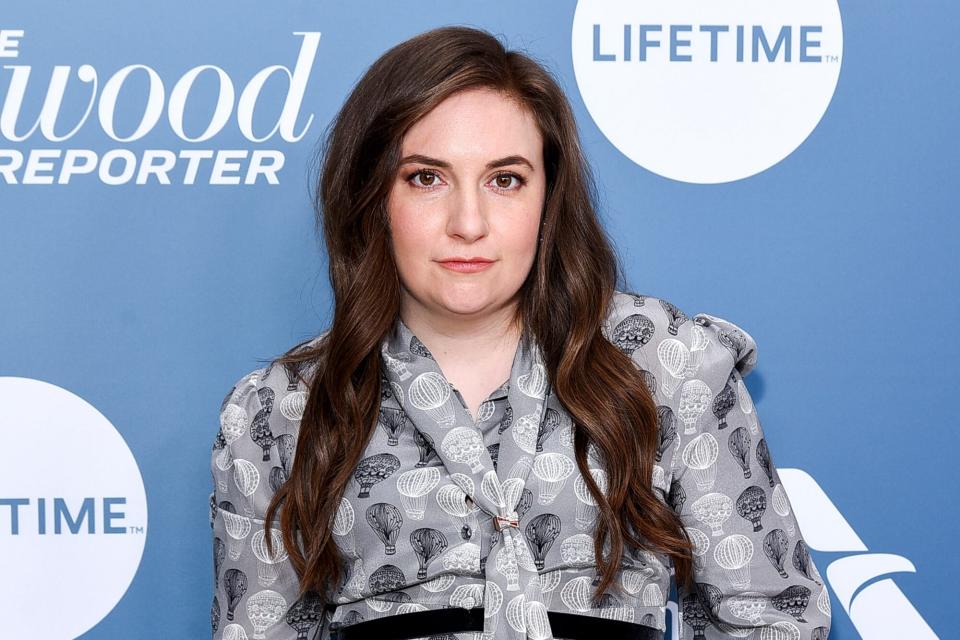Lena Dunham Celebrates Being '2 Years Clean and Sober': 'It’s a Miracle I Can’t Take for Granted'
Lena Dunham is reflecting on her two years of sobriety after giving up the anti-anxiety medication Klonopin.
The Girls creator and actress, 33, opened up about being “2 years clean and sober” in an Instagram post shared on Friday. Dunham celebrated the milestone by sharing a selfie of herself smiling at the camera as she looked back on her journey in the photo’s caption.
“It’s a miracle I can’t take for granted no matter how hard I try,” she wrote. “Two years ago I didn’t think I needed to get sober. But a quiet voice inside me said, “lay it down for a moment” and then other, louder voices helped me keep it up. To those voices- you know who you are and thank you x infinity.”
“My heart pounds thinking of who I was two years ago. I was afraid to change but what actually happened was that I became myself again, a young and carefree self, a self who was clear in intention and bold in action and – most of all- free. We know, now more than ever, that we all need to be free,” she continued.
While Dunham says her life isn’t perfect since the big change, she feels she made the right call in becoming sober.

Presley Ann/Getty Images Lena Dunham
RELATED: Lena Dunham Says Her Hair Is Now a ‘Living Metaphor’ After Health Issues Led Her to Go Bald
“When I first got sober, people often told me it was the best choice they’d ever made, the achievement of which they’re most proud. That seemed crazy- NOT doing something was the best thing they’d ever done??? But they were right- not using and removing secrecy and self harm from my repertoire, has given me a life beyond my wildest dreams,” she told her followers. “Not because it’s perfect, but because it is really and truly mine.”
The star ended her note by encouraging those who may be dealing with addiction problems to seek help, writing, “There is real help available for people who feel they are beyond hope. So many people are waiting for you across a shaky but time tested bridge.”
Dunham first spoke about her struggles with Klonopin during a 2018 episode of Dax Shepard‘s podcast Armchair Expert, in which she said she started taking the medication after her anxiety held her back from daily activities and hindered her work.
“I was having crazy anxiety and having to show up for things that I didn’t feel equipped to show up for,” she explained. “But I know I need to do it, and when I take a Klonopin, I can do it.”
RELATED: Lena Dunham Had a Full Hysterectomy to Remove Her Uterus and Cervix and End Endometriosis Pain
Lena Dunham Had a Full Hysterectomy to Remove Her Uterus and Cervix and End Endometriosis Pain
Lena Dunham recently underwent a total hysterectomy to remove her uterus and cervix, in the hopes of ending her crippling endometriosis-related pain
She said the drug made her “feel like the person I was supposed to be” to a point where she started taking it more frequently.
“It stopped being ‘I take one when I fly,’ to ‘I take one when I’m awake,'” she revealed. “I didn’t have any trouble getting a doctor to tell me, ‘No you have serious anxiety issues, you should be taking this. This is how you should be existing.’”
Last year, Dunham shared about her experience in rehab during the Friendly House treatment center’s 30th Annual Awards Luncheon.
“When I was dropped at rehab, I thought it was the end of my life,” she said in her speech. “Seemingly overnight, I had lost almost all of what I held dear. My relationships, my body and my career were in relative shambles from decisions I had made and things that had happened. Well, I was under the influence of pills that I thought dulled my pain, but actually created it. I kept repeating the phrase I just don’t see a place for myself in the world anymore. And that wasn’t suicidal ideation. Exactly. I had simply edged myself out of the picture. Like I was a Polaroid. That wouldn’t develop.”

Stewart Cook/Variety/Shutterstock Lena Dunham
RELATED: Lena Dunham Reflects on Her Time in Rehab: ‘Getting Sober Changed My Life’
“At the threshold of the treatment center as my parents dropped me off like it was camp I took off my boots,” she continued. “There was a no shoes rule and walked into a room of people whose pain radiated off of them, like some terrible superpower. I was such an open nerve that on my first day of group therapy when I was asked to share a little bit about why I was there, I told my seemingly endless tale of whoa. You know, the one, just the one that justified and necessitated being numbed by medication. The patients. And the therapist simply looked at me and said, ‘s—.’”
The Tiny Furniture director explained that her healing “began because I allowed myself to be loved by a group of people in recovery who showed me that I was worth saving and worth loving no matter what metaphorical and like sometimes literal alleys I had wandered down.”
She added, ”And so after much contemplation moving further through my journey of recovery and talking to other sober women, I realized being me has hurt and sometimes it’s hurt so much that I couldn’t bear it. But being me is also a super power. And it’s the same for all of you.”
If you or someone you know is struggling with addiction, please contact the SAMHSA substance abuse helpline at 1-800-662-HELP.

